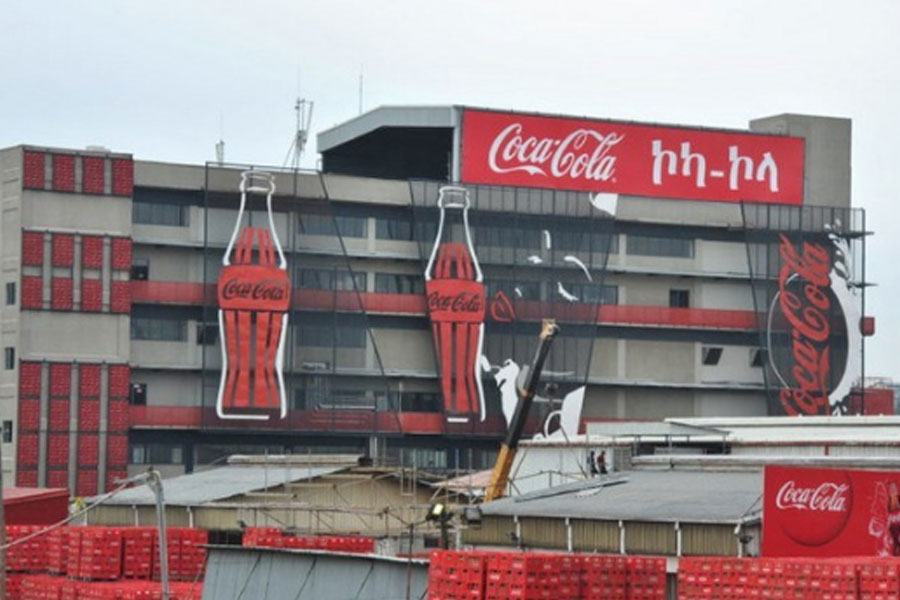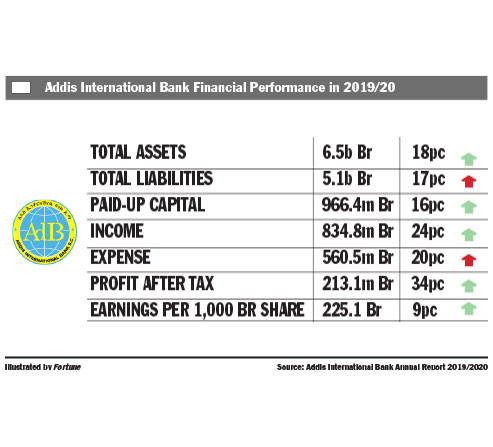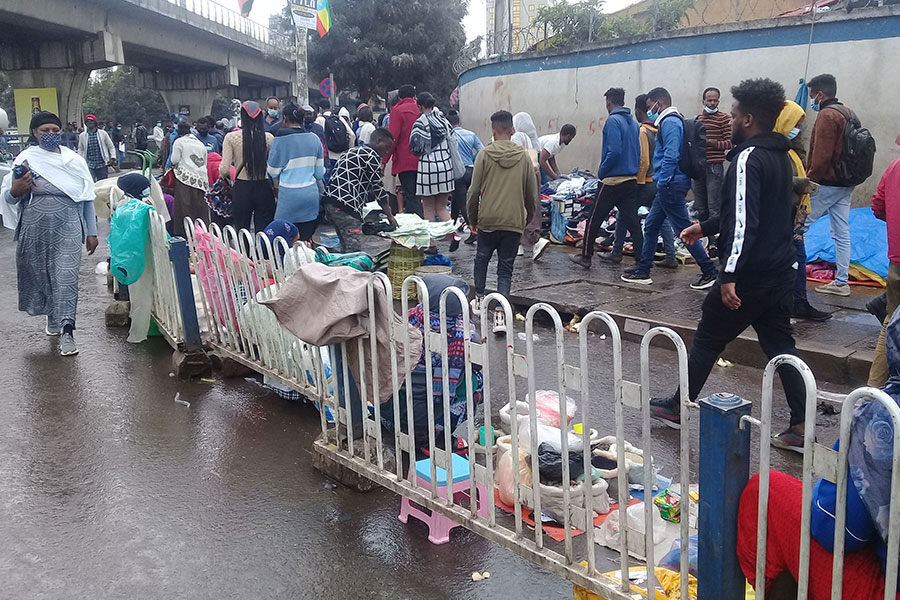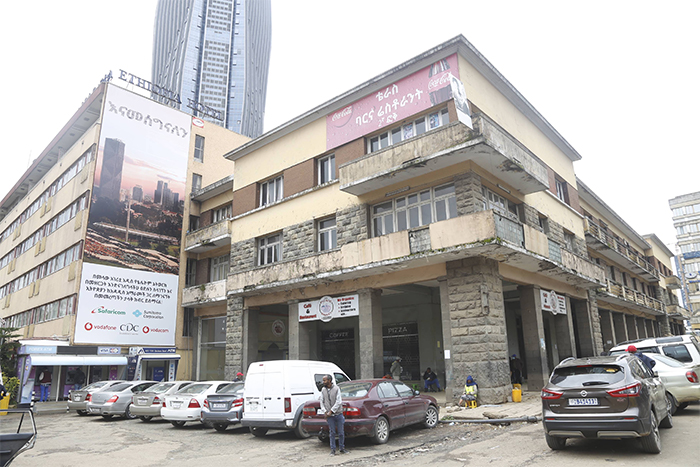
Radar | Jan 09,2021
On a fine early Sunday morning, a knock on the door interrupted my deep sleep. It was my neighbours who wanted to go to church, asking for assistance to move my car and let theirs out. Although their usual way out was blocked by another vehicle, they chose to engage with me because of our acquaintance and I obliged considering the time-sensitive moment.
The response might not always be smooth.
I recall my entire apartment block was woken by the incessant and blaring honk of a horn. It was accompanied by angry calls from a man who had his car blocked. With a peaceful morning disrupted by the 'rude awakening', residents, including myself, began to slide open windows and see what was going on.
Then multiple voices were heard from the houses in protest of the honking man who was an early bird that wanted to take off. If that was not enough, the driver blocking his car was nowhere to be found. From the inadvertent way the vehicle was parked, residents began contemplating it was someone who arrived in the wee hours after a late-night binge drinking and might be dead asleep. Finally, a contingent solution was found to free some space for the trapped vehicle and everyone was back to business as usual, resenting the insensible person who interrupted the sweet morning sleep of many. No one bothered to follow up on the case.
I was not as lucky on a couple of occasions that landed me in the same situation.
My routine on a working day leaves a narrow period for contingencies before the rush hour traffic. Therefore, I opted to take a ride rather than wait for the owner of the car who blocked mine. On another incident, I pinned a note on the vehicle's windshield to refrain from such offence, clearly stating my car plate number. The stern reply on my windshield was a clear indicator that the driver neither had manners nor a sense of responsibility. Talk about parking conscience along with cars!
For some, it seems not only their vehicle is parked but their sense of decency. The situation is more upsetting when the confined person is in a rush.
Parking remains a challenge when driving on the streets of Addis Abeba. Bustling streets that were not designed with enough space to accommodate cars are squeezed to the point of risking collision. It is not unusual for drivers to be interrupted from their endeavours and make way for another motorist. At times, additional row emerges with parked vehicles blocking existing ones. Meanwhile, parking attendants sprint in all directions to trace the careless culprit nowhere to be found.
It brings to mind the existential question of whether rules will always be dependent on enforcement. Compliance is enforced better in downtown areas where traffic police are present. A different picture is painted in suburban highways and residential neighbourhoods with fewer administrative mechanisms in place. Those with a “Might is Right” attitude get away with violations while collateral damages usually take matters into their own hands. But two wrongs do not make a right.
In urbanised cities where fairly uniform law enforcement and surveillance technology are in place, careless and inadvertent parking rarely goes unpunished. The vehicle will be towed or airlifted and the owner will be fined for breaching the rules.
It would be unfair to leave out the positive trend in Addis Abeba where public, commercial, real estate and hotel buildings allot significant parking spaces, on ground and basement floors. Century Mall, Ghion Hotel, Abrehot Library and Friendship Square are noteworthy mentions.
My greatest appreciation goes to the underground parking space built at Meskel Square cognizant of not only the current but also the future demands. The lot is inaccessible to anyone who did not park their car with a foolproof mechanism. One is expected to have the parking card at hand upon return. Around-the-clock service with a 10 Br rate for an hour coupled with a security system aided by surveillance cameras, it has yet to see its full capacity.
However, the sparse occupancy of the grand infrastructure belies the reality that parking remains a challenge around the Square and adjacent streets. The road leading towards Africa Avenue (Bole Road), the Arat Kilo area and across Ghion Hotel is filled with cars playing cat and mouse with the traffic police while competing for spaces which by design were not for parking purposes.
Upon a few conversations, what I realised is that although parking around these areas is tricky, the distance to the drivers' destination is nearer than the ample space which is much safer, cheaper and legal.
With meagre security and the probable parking validation fine, it seems as if drivers have opted to park their vehicles at their own risk— an ironic semblance to cliché disclaimer placards. It never ceases to pique my curiosity the disclaimer usually comes from places fully equipped with surveillance technology and manned with security personnel. Perhaps it is to push out vehicles that take advantage of the free parking lots.
Besides providing a safe and secure space, the regulated and organised parking systems open job opportunities making a mark on the economy. The parking sector could be a lucrative investment for those looking. With the city’s expansion at breakneck speed and ever-growing vehicle numbers, I believe engaging the youth in organised parking spaces is one way to tackle unemployment on the rise.
PUBLISHED ON
Dec 09,2023 [ VOL
24 , NO
1232]


Radar | Jan 09,2021

Radar | Jan 26,2019

Fortune News | Mar 27,2021

Radar | Dec 10,2018

Fortune News | Apr 03,2021

View From Arada | Aug 10,2024

Commentaries | Feb 27,2021

Fortune News | Jul 18,2021

Radar | Aug 10,2025

Fortune News | Jan 05,2020

Dec 22 , 2024 . By TIZITA SHEWAFERAW
Charged with transforming colossal state-owned enterprises into modern and competitiv...

Aug 18 , 2024 . By AKSAH ITALO
Although predictable Yonas Zerihun's job in the ride-hailing service is not immune to...

Jul 28 , 2024 . By TIZITA SHEWAFERAW
Unhabitual, perhaps too many, Samuel Gebreyohannes, 38, used to occasionally enjoy a couple of beers at breakfast. However, he recently swit...

Jul 13 , 2024 . By AKSAH ITALO
Investors who rely on tractors, trucks, and field vehicles for commuting, transporting commodities, and f...

Nov 1 , 2025
The National Bank of Ethiopia (NBE) issued a statement two weeks ago that appeared to...

Oct 25 , 2025
The regulatory machinery is on overdrive. In only two years, no fewer than 35 new pro...

Oct 18 , 2025
The political establishment, notably the ruling party and its top brass, has become p...

Oct 11 , 2025
Ladislas Farago, a roving Associated Press (AP) correspondent, arrived in Ethiopia in...